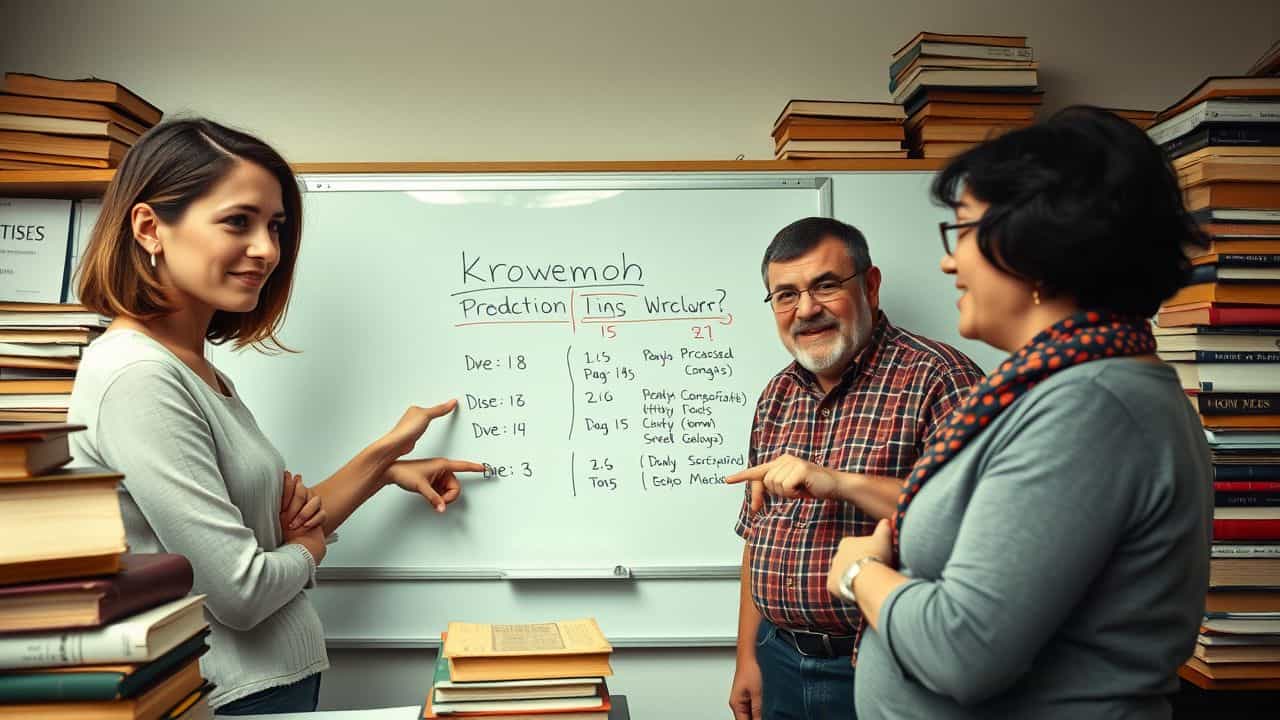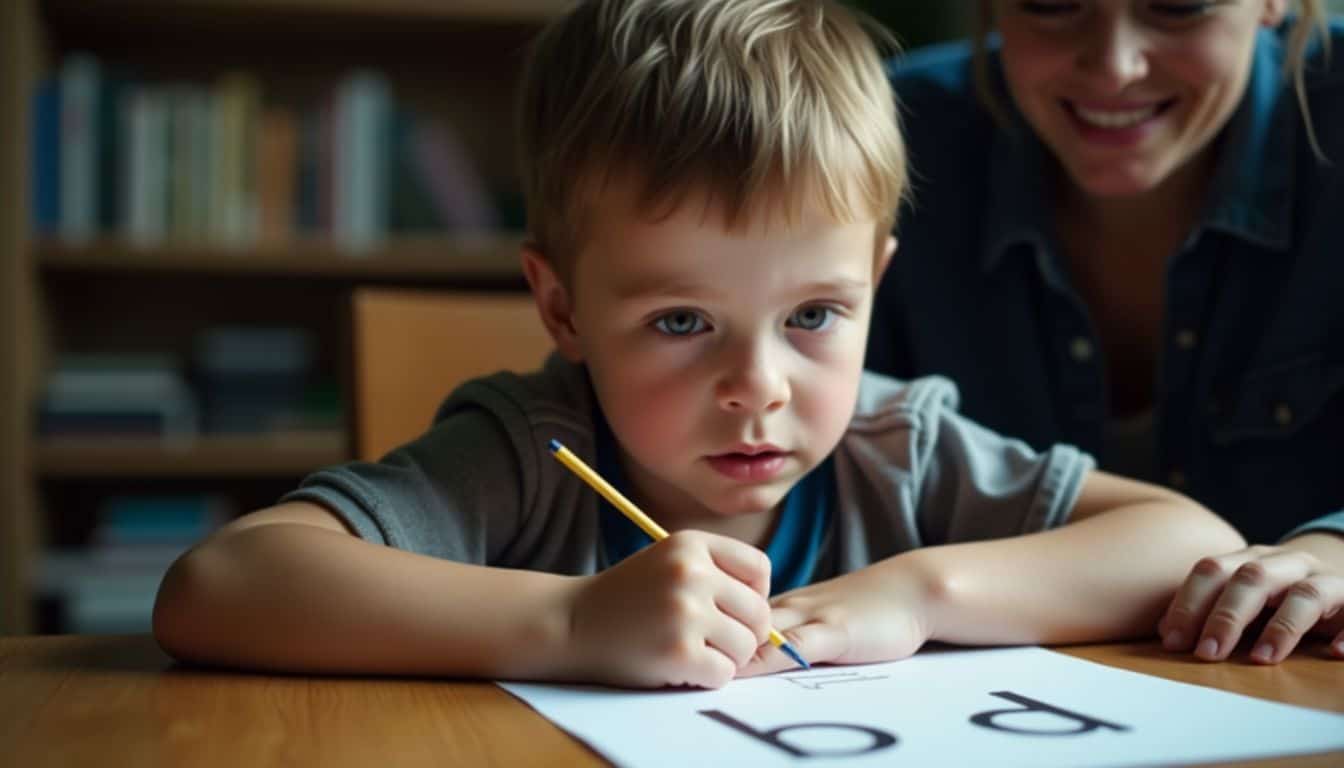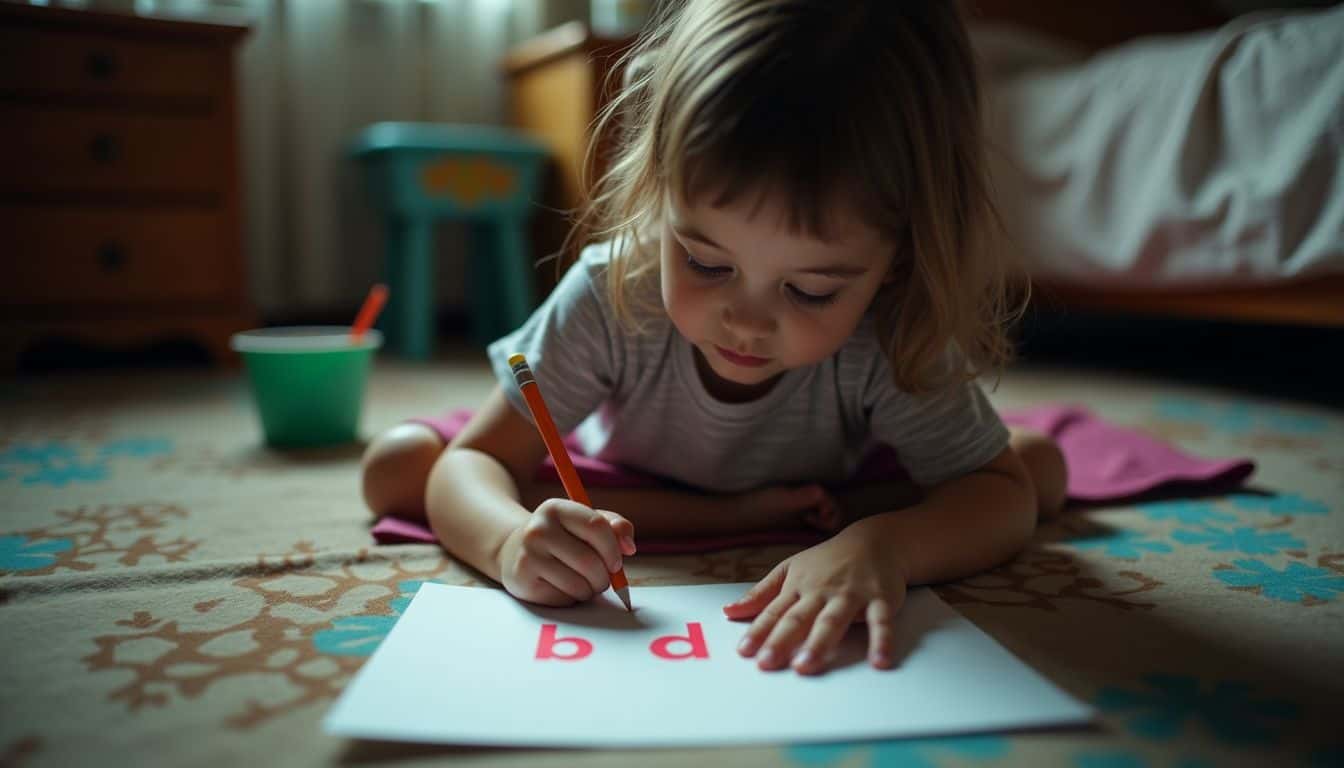Have you seen the viral claim asking “what is homework spelled backwards”? Social media users claim that “krowemoh” means “child abuse” in Latin. This false story has spread like wildfire across Twitter, Instagram, and Facebook since 2013.
Let’s uncover the real truth behind this viral hoax.
Key Takeaways
The viral claim that “krowemoh” (homework spelled backwards) means “child abuse” in Latin started with a tweet on March 17, 2013, and gained massive attention in 2021.
A single Instagram post about ‘krowemoh’ received 18,000 likes in February 2021. The false claim spread quickly through social media platforms like TikTok, Twitter, and Facebook.
Language experts confirm ‘krowemoh’ isn’t a real Latin word. The Latin alphabet only had 23 letters and didn’t include ‘W’. The actual Latin phrase for “child abuse” is “puer abusus.”
Fact-checking websites like Snopes (January 31, 2021) and Reuters (March 8, 2021) proved the claim was false. The University of Chicago found false news travels six times faster than true stories on social media.
Mirror writing is normal in children ages 3 to 7. Most kids outgrow this phase naturally. Parents should seek professional help if writing problems continue past age 8.
Table of Contents
The Viral Claim About ‘Homework’ Spelled Backwards

A viral social media post claimed that “krowemoh” (homework spelled backwards) means “child abuse” in Latin. The false claim spread like wildfire across Instagram and Twitter in 2021, catching the attention of students and parents, who shared it thousands of times.
Origin of the claim

The internet buzz about “krowemoh” started with a simple tweet on March 17, 2013. I stumbled upon this while write my essay for my linguistics class.
The tweet claimed that spelling “homework” backward revealed a Latin word meaning “child abuse.” This false claim spread like wildfire across social media platforms. Urban Dictionary first listed “krowemoh” on January 6, 2021, thanks to user Sherli Damelio.
Social media users kept sharing this fake Latin translation without fact-checking. The story gained more traction through Reddit in January 2021. Many people shared and retweeted the claim because it seemed to match their feelings about homework.
The false information spread quickly on Instagram, Twitter, and Facebook. Let’s look at what language experts say about this supposed Latin connection.
Popularity on social media platforms

Social media buzz turned this backwards spelling claim into a viral sensation. People shared posts about ‘krowemoh’ across TikTok, Instagram, Facebook, Twitter, Reddit, and YouTube in January 2021.
The hashtag spread like wildfire through meme accounts and fact-checking websites.
Misinformation travels faster than truth on social media – MIT Technology Review
Numbers tell the real story of this viral trend. A single Instagram post showing a google search about ‘krowemoh’ grabbed nearly 18,000 likes in February 2021. TikTok users jumped on the bandwagon too, with posts racking up thousands of likes.
Fact-checking sites like Snopes.com rushed to investigate these claims. Online dictionaries faced a surge of people looking up this non-existent Latin word. I saw my own social feeds flood with friends sharing and debating this urban legend, proving how fast false claims can spread through digital networks.
Fact-Checking the Meaning of ‘Krowemoh’

Let’s bust a myth: ‘Krowemoh’ isn’t a Latin word and doesn’t mean ‘child abuse’ in any language. Google Translate and Merriam-Webster confirm this claim started as a social media joke that spread like wildfire.
Does it translate to ‘child abuse’ in Latin?

The viral claim about “krowemoh” meaning “child abuse” in Latin falls flat under basic fact-checking. Latin scholars at major universities confirm this translation doesn’t exist. The Latin alphabet had only 23 letters and didn’t include ‘W’, making “krowemoh” impossible in classical Latin.
Plus, the actual Latin phrase for “child abuse” is “puer abusus.”
Online dictionaries and language tools crush this myth further. Logeion, a trusted Latin database, shows zero matches for “krowemoh.” Google Translate backs this up, too. The spread of this false claim shows how bad for students, misinformation can be, especially when it goes viral on social media platforms.
Evidence debunking the claim

Leading fact-checkers have crushed this Latin language myth. Snopes published a clear report on January 31, 2021, proving “krowemoh” holds no meaning in Latin. Reuters Fact Check backed this up on March 8, 2021, with their own investigation.
Professional linguists at major universities confirm “krowemoh” doesn’t exist in any romance languages or old english texts. No latin-speaking scholars recognize this word. You won’t find it in any online dictionary or encyclopedia.
Social media memes spread this fake story fast, but the truth stands firm – “krowemoh” is just “homework” spelled backwards, nothing more.
Why the Claim Went Viral

Social media users love to share wild claims about hidden meanings in everyday words. The fake Latin translation of “krowemoh” spread like wildfire on Instagram because it tapped into people’s mixed feelings about homework and their love for urban legends.
Role of misinformation online

Misinformation spreads faster than wildfire in our digital age. False claims about ‘krowemoh’ gained massive traction through misleading screenshots and viral posts on Instagram. The platform’s fact-checkers had to step in, flagging several posts with warning labels about false information.
Yet, these posts still reached millions of users before anyone could stop them.
People share fake content without checking its accuracy first. The University of Chicago found that false news travels six times faster than true stories on social platforms. This rapid spread happens because fake content often triggers strong emotions like anger or surprise.
A lie can travel halfway around the world while the truth is putting on its shoes.
English language experts and meme creators play a big role too – they can make false claims look credible by adding fake translations or historical references.
Influence of humor and satire
Humor plays a huge role in spreading viral content across social media platforms. People love to share funny memes and jokes, even if they know the content isn’t true. The ‘krowemoh’ trend took off because it mixed clever wordplay with a dash of social commentary about homework.
Many english languages fans jumped on board, creating their own spin-offs and jokes about the supposed meaning.
Memes and satire help people cope with daily struggles through laughter. The claim about ‘krowemoh’ meaning ‘child abuse’ in Latin sparked countless jokes on Instagram accounts. Users poked fun at the idea by saying homework itself was the real problem.
This mix of humor and relatable content turned a simple backwards spelling into a viral sensation. I’ve seen firsthand how my students share these kinds of posts, using germanic word origins to create new jokes about their homework load.
Understanding Backwards Writing in Children

Backwards writing shows up often in kids aged 3 to 7 as they learn to master letters and words. Parents can spot this mirror writing in homework assignments, where ‘b’ becomes ‘d’ or entire words flip around like old English text.
Normal developmental stages of writing and spelling

Kids start their writing journey by making random marks and scribbles on paper. Most children begin this stage around age 2 or 3, treating their pencils like toys. They move on to drawing basic shapes and letters between ages 4 and 5.
During this time, they often mix up similar-looking letters like ‘b’ and ‘d’ in their English vocabulary. This natural process shows how their brains learn to process written language.
The brain needs time to master writing and spelling skills. Young writers often create mirror images of letters or write from right to left at first. They learn proper letter formation through practice and exposure to written words.
Most kids master basic writing rules by age 7, though some take longer. Parents should stay patient during this process since each child develops at their own pace.
Mirror writing: When children reverse letters and words

Young brains develop writing skills in fascinating stages. Mirror writing shows up as a natural part of this growth. Some children flip letters like ‘b’ and ‘d’ or write entire words backward.
I noticed this pattern while teaching my nephew, who wrote “diacritical marks” as if looking at them in a mirror.
Brain development explains this mirror writing phase in children. The left and right sides of their brains need time to work together properly. Many famous people, like Leonardo da Vinci, wrote in mirror script.
This skill appears in old English languages too. Most children grow out of this stage by age seven. Parents often share these backward writings on urbandictionary.com and memer sites for laughs.
Still, mirror writing remains a normal part of learning to read and write.
When to seek professional assessment
Mirror writing often fixes itself as kids grow. Still, parents should watch for signs that need expert help.
Most kids need a check-up if writing problems last past age 8. Teachers spot these issues first through daily work. A doctor visit helps rule out vision troubles or learning differences.
Speech therapists and occupational therapists test specific skills like hand control and letter formation. These pros create fun ways to practice writing correctly. Parents don’t need to worry about every backward letter, but getting help early makes a big difference.
People Also Ask
What does ‘krowemoh’ mean, and why is it trending?
‘Krowemoh’ is simply homework spelled backwards. It became popular on social media when people claimed it meant “child abuse” in Latin, but this isn’t true. It’s just a fun word game that went viral.
Is there any special meaning when you spell homework backwards?
No, spelling homework backwards doesn’t have any hidden or special meaning. ‘Krowemoh’ isn’t a real word in any language. It’s just letters flipped around, like looking at homework in a mirror.
Why do people keep sharing posts about ‘krowemoh’?
Social media loves a good story, even if it’s not real. The claim about ‘krowemoh’ spread because it seemed spooky and interesting. People share it without checking if it’s true.
How can I check if stories like the ‘krowemoh’ claim are true?
Look up words in trusted dictionaries or ask teachers. Don’t believe everything you see online. Real Latin words are easy to check in Latin dictionaries, and ‘krowemoh’ isn’t in any of them.
